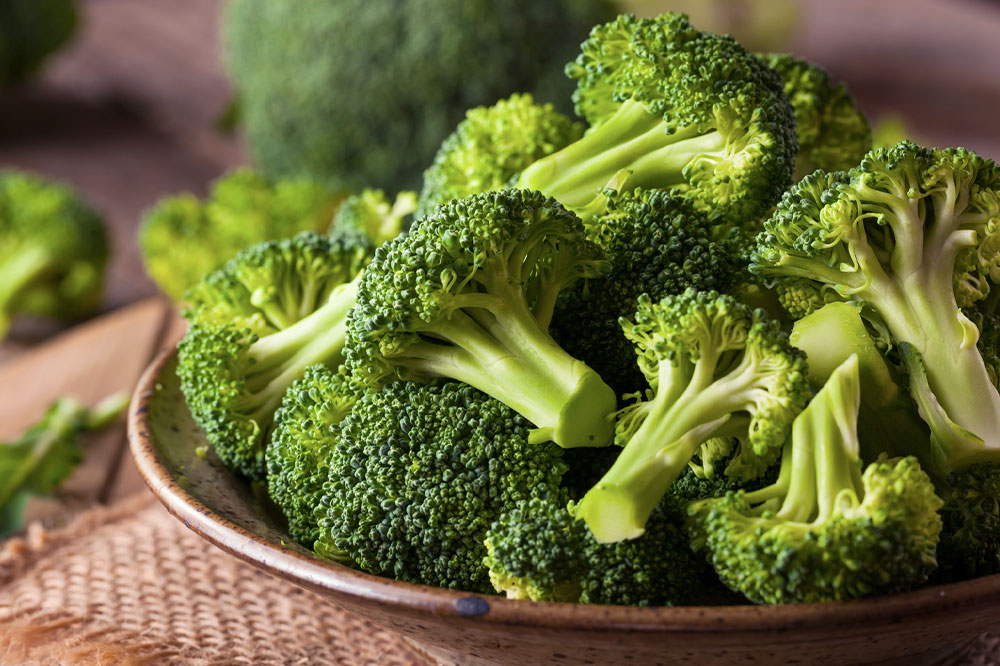7 foods that aid recovery from colon cancer

Colon cancer refers to cancer of the rectum or colon and typically begins as growth or polyp. Rectal bleeding, constipation and diarrhea, fatigue, abdominal pain, and bowel incontinence are some symptoms of this type of cancer. Alongside chemotherapy and other interventions, a change in eating habits can provide relief from colon cancer symptoms and help patients recover better. Here are some foods that can help alleviate the effects of this cancer type:
Cruciferous vegetables
Cruciferous vegetables, particularly broccoli, contain high sulforaphane, a sulfur-rich phytochemical that helps fight cancer. Other cruciferous vegetables like kale, cabbage, bok choy, Brussels sprouts, collards, and mustard greens are also rich in sulforaphane and can help battle colon cancer.
Foods rich in carotenoids
Carotenoids are phytonutrients responsible for certain foods’ red, yellow, and orange pigmentations. Studies have demonstrated that these phytonutrients have cancer-fighting properties and help protect against colon cancer. Thus, carotenoid-rich foods like carrots, papayas, pumpkins, tomatoes, cantaloupes, and winter squash are beneficial for patients with colon cancer.
Lean protein sources
Chemotherapy can be a harrowing process that can considerably deplete one’s strength. Thus, it is important to replenish your body with essential proteins to regain energy throughout this procedure. Lean protein sources like Greek yogurt; eggs; white-fleshed fish such as haddock, halibut, and cod; low-fat cottage cheese (in case of no lactose intolerance); skinless chicken and turkey breast; and tofu are good sources of lean protein.
Fatty fish
Fatty fish, or fish varieties rich in omega-3 fatty acids, can help reduce inflammation and soothe the digestive tract, facilitating better recovery from colon cancer. Some varieties of fish containing omega-3 fatty acids include swordfish, baked or smoked Atlantic salmon, gemfish, Spanish mackerel, tuna, sardines, and herring.
Electrolytes
Patients with cancer must undergo several rounds of chemotherapy and other interventions, which can cause changes in the levels of essential elements like sodium, potassium, and calcium. Such fluctuations can trigger electrolyte imbalance in the body. Thus, patients with colon cancer must consume rich sources of electrolytes, such as leafy green vegetables, fruits like watermelon and banana, legumes, coconut water, and smoothies.
Fibrous foods and complex carbohydrates
Fiber or roughage is an integral aspect of ensuring the optimal functioning of the intestines. Hence, consuming fiber-rich foods and complex carbohydrates — rich in fiber content — can significantly help aid digestion among patients with colon cancer. Some fibrous foods and complex carbohydrates that can benefit patients with colon cancer are brown rice, nuts, legumes, non-starchy vegetables, berries, oatmeal, chickpeas, and barley.
Healthy fats
Healthy fat sources provide the body with energy and help reduce inflammation, aiding colon cancer recovery. Some healthy fats include olive oil, clarified butter, nuts and seeds, avocados, peanut butter, and tofu.
Avastin® is an approved intervention for metastatic colorectal cancer (mCRC) and is administered alongside chemotherapy. It has been proven to increase the survival chances of patients with colon cancer. CYRAMZA® is prescribed in combination with FOLFIRI (i.e., irinotecan, folinic acid, and fluorouracil) and is also used to treat mCRC. It is administered alongside or after a treatment course entailing bevacizumab, oxaliplatin, and fluoropyrimidine. Besides following the prescribed treatment course and making lifestyle changes, seeking active support for daily chores, maintaining a proper sleep schedule, and consulting a mental health professional if required can support the recovery process.

